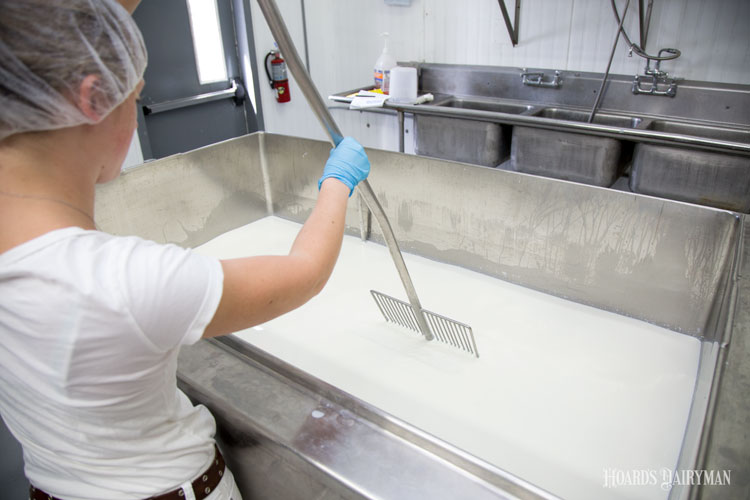
The dairy supply chain was able to keep operating as best it could last spring thanks in no small part to the employees working at dairy processing plants. Consider this: There weren’t the large COVID-19 outbreaks or worker walkouts that occurred at some meat processing plants, causing tremendous backlogs of product. Things undoubtedly could have gone much differently.
Instead, people truly rallied around the concept of being an essential worker, embracing the need to show up and literally feed their fellow citizens. They took changes to their workday in stride because they knew they were being implemented for good reason.
Now the concern is getting more people to join that workforce.
“Labor is extremely tight right now. There are a lot of options out there,” explained Bryan Weller on the April 21 Hoard’s Dairyman DairyLivestream. Weller serves as the director of procurement and sourcing for the Agri-Mark co-op in the Northeast. He described how their plants are having difficulty attracting entry-level production workers away from other manufacturers offering significant benefits or even just staying home.
“One of the greatest threats to our business right now is having enough people to get the product out the door,” he stated. To fill that need, he shared that it’s not uncommon to see directors, managers, and vice presidents working on the floor with their production staff.
Weller said, “That’s the kind of effort we’re putting forth to feed people and to add value to our members’ milk.” It’s proving much more difficult to foster that pride and sense of worth in a new employee that could easily do something else, he shared.
For years prior to the pandemic, John Umhoefer of the Wisconsin Cheese Makers Association said that their members had reported labor as their top business concern. “Then you put COVID-19 back in the mix, the need to space people and the need to find people who feel comfortable going into a work environment just makes it that much worse,” he said.
Reducing the need
To try to meet this challenge, processors are looking into several solutions. Weller said that while they are trying to be aggressive in hiring people, they are analyzing where they can automate and streamline processes to reduce the necessary number of people. The industry has done a lot of automation over the past decade, but the current challenges will probably provide a big push for those that had been hesitant, he believes.
Another option he advocates for is cross-training existing employees to add value to their skills and equip them to fill a number of the company’s roles. “The reality is that we’re going to be living with a net negative balance in terms of labor for an indeterminate amount of time,” Weller stated. Having the ability to shift employees around to where help is needed makes for a more agile business that can better deal with that deficit, he continued.
Cross-training may also be more easily accepted by today’s workforce than it may have been in the past. From Weller’s perspective, you are giving people more flexibility and choice, and that helps your company become a desired employer. “I think we live in an environment now where people crave change and challenge more so than they ever have before,” he said. “I think you’re going to struggle to see someone that sits in a position for 10 to 15 years going forward.”
Though they may not be in the same position, a dedicated worker may be more inclined to use their skills at the same company for that length of time or longer. Dairy processing employees have certainly shown that kind of commitment during this pandemic, we just hope to find more of them out there.
An ongoing series of events
The next broadcast of DairyLivestream will be on Wednesday, May 5 at 11 a.m. CDT. Each episode is designed for panelists to answer over 30 minutes of audience questions. If you haven’t joined a DairyLivestream broadcast yet, register here. Registering once registers you for all future events.








